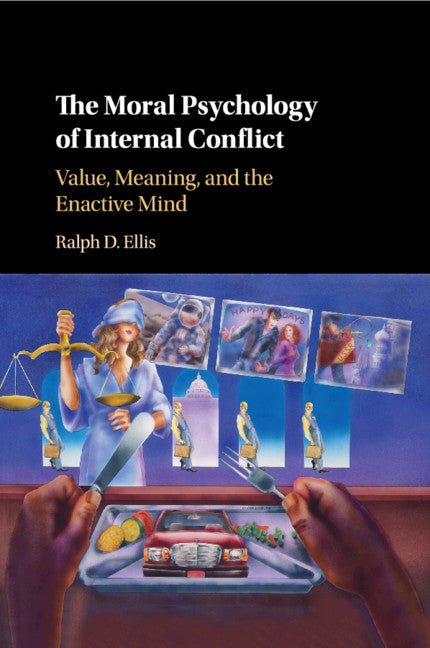Freshly Printed - allow 8 days lead
Couldn't load pickup availability
The Moral Psychology of Internal Conflict
Value, Meaning, and the Enactive Mind
Beyond mere emotivism, a self-organizational enactivism grounded in an exploratory drive, or SEEKING system, suggests a truth-functional yet hermeneutical moral psychology.
Ralph D. Ellis (Author)
9781108713764, Cambridge University Press
Paperback / softback, published 29 August 2019
246 pages
22.9 x 15.2 x 1.4 cm, 0.38 kg
'Drawing on neuropsychological evidence, Ellis attempts to derive a 'natural science' of ethics in which value is understood by motivational principles that cohere in an exploratory drive to seek truth … Carefully argued and a fitting example of how contemporary philosophy of mind is done, Ellis's book makes a strong case for what he calls a coherentist approach to moral psychology, both in terms of how a coherent value system yields universality and how such a system is affected by selective attention.' J. Orgeron, Choice
Pushing back against the potential trivialization of moral psychology that would reduce it to emotional preferences, this book takes an enactivist, self-organizational, and hermeneutic approach to internal conflict between a basic exploratory drive motivating the search for actual truth, and opposing incentives to confabulate in the interest of conformity, authoritarianism, and cognitive dissonance, which often can lead to harmful worldviews. The result is a new possibility that ethical beliefs can have truth value and are not merely a result of ephemeral altruistic or cooperative feelings. It will interest moral and political psychologists, philosophers, social scientists, and all who are concerned with inner emotional conflicts driving ethical thinking beyond mere emotivism, and toward moral realism, albeit a fallibilist one requiring continual rethinking and self-reflection. It combines 'basic emotion' theories (such as Panksepp) with hermeneutic depth psychology. The result is a realist approach to moral thinking emphasizing coherence rather than foundationalist theory of knowledge.
Part I. Love of Truth and 'Moral Sentiments': 1. The paradox of the charitable terrorist
2. Can we have naturalism without the naturalistic fallacy? 3. Love of truth and 'vital lies': basic conflicting emotions in moral and political psychology
4. Moral realism, hermeneutics, and enactive epistemology: the truth 'resists us'
Part II. Truth-Seeking and the Hermeneutic Circle: 5. 'Attention must be paid!' Hermeneutics and the demand for universalization
6. The coherence of moral worldviews: beyond the privileging of nihilism
7. Kantian abstractions and the embarrassment of reason: the need for hermeneutics
8. The limits of hedonism: paradoxes of 'expanded egoism'
9. The hermeneutic process in action: fallibilism and the role of emotion in moral and political psychology.
Subject Areas: Social, group or collective psychology [JMH], Cognitivism, cognitive theory [JMAQ], Ethics & moral philosophy [HPQ]


